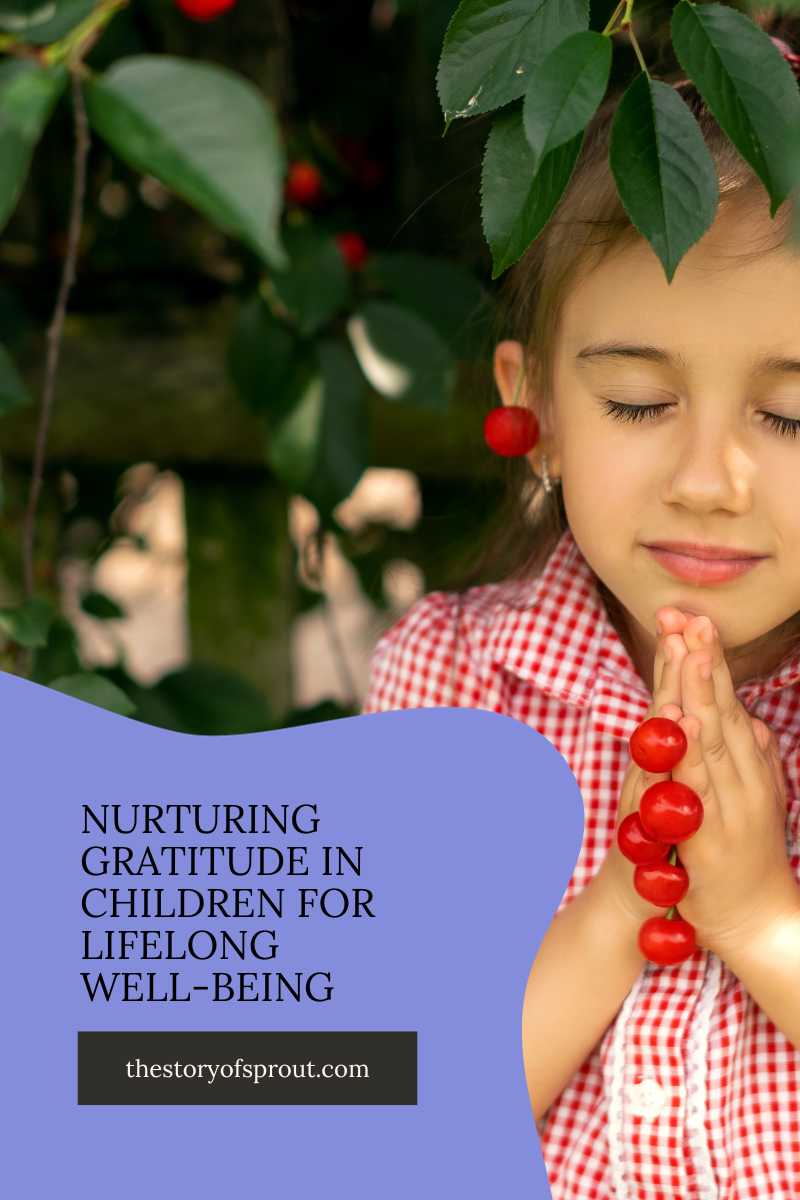
Nurturing Gratitude in Children for Lifelong Well-being
|
|
Time to read 4 min
|
|
Time to read 4 min
Gratitude is a powerful force that significantly influences our overall well-being. When instilled from a young age, it can shape a child's perspective, fostering a positive outlook on life. Let's explore the essential aspects of nurturing gratitude in children, emphasizing its role in lifelong well-being.
Gratitude is a complex emotion that develops and manifests differently across various age groups. Understanding the developmental stages of gratitude is crucial for effective nurturing and fostering a positive and appreciative mindset. Here's an exploration of how gratitude manifests in different age groups and common challenges faced in the process:
Understanding these developmental stages and challenges can guide parents, educators, and individuals in fostering a positive and appreciative mindset throughout the lifespan. Encouraging gratitude from an early age and modeling the behavior in various contexts can contribute to the overall well-being of individuals and communities.
In the enchanting tale of "Sprout," the power of literature becomes evident as it takes center stage in shaping the protagonist's values and understanding of gratitude. As Woodsprout embarks on his journey of self-discovery, his father's gift, the meticulously crafted book, becomes not only a repository for his life's story but also a guide to gratitude.
The characters Sprout encounters during his travels serve as literary mentors, offering insights that extend beyond mere words on a page. The Miller, the Knight, the Librarian, the Hag, and the Wizard, among others, play pivotal roles in shaping Sprout's understanding of truth, knowledge, and goodness. Through these vibrant characters, Sprout learns to appreciate the diverse perspectives and experiences that contribute to a rich tapestry of life.
The act of documenting his adventures and the lessons learned in his cherished book becomes a tangible expression of gratitude. Each entry serves as a testament to the people he encounters and the wisdom gained along the way. The very act of chronicling his experiences transforms Sprout into a grateful narrator, recognizing the value of every encounter and the lessons bestowed upon him.
The overarching theme of "Sprout" mirrors the potential of literature as a tool for teaching gratitude. The narrative showcases how stories can inspire a desire for wisdom, encouraging readers, young and old, to seek knowledge and appreciate the myriad wonders of the world. Sprout's journey becomes a metaphor for the transformative power of literature in instilling gratitude—a journey that transcends the pages of the book and invites readers to embark on their own quests for understanding and appreciation. Through this modern-day fairy tale, children are not only entertained but also encouraged to reflect on the profound lessons that literature can offer, shaping their character and fostering a sense of gratitude for the gifts life presents.
Nurturing gratitude in children is a vital investment in their lifelong well-being. By understanding its developmental aspects, embracing its benefits, and overcoming challenges, parents and educators can shape a future generation with a positive and grateful mindset. Encourage continued practice and reflection for a brighter, more grateful tomorrow.
Ready to cultivate gratitude in the next generation? Dive deeper into the transformative insights of Richard P. Gleason's Sprout. Purchase your copy now and embark on a journey of nurturing gratitude in children for a brighter, more grateful tomorrow!
